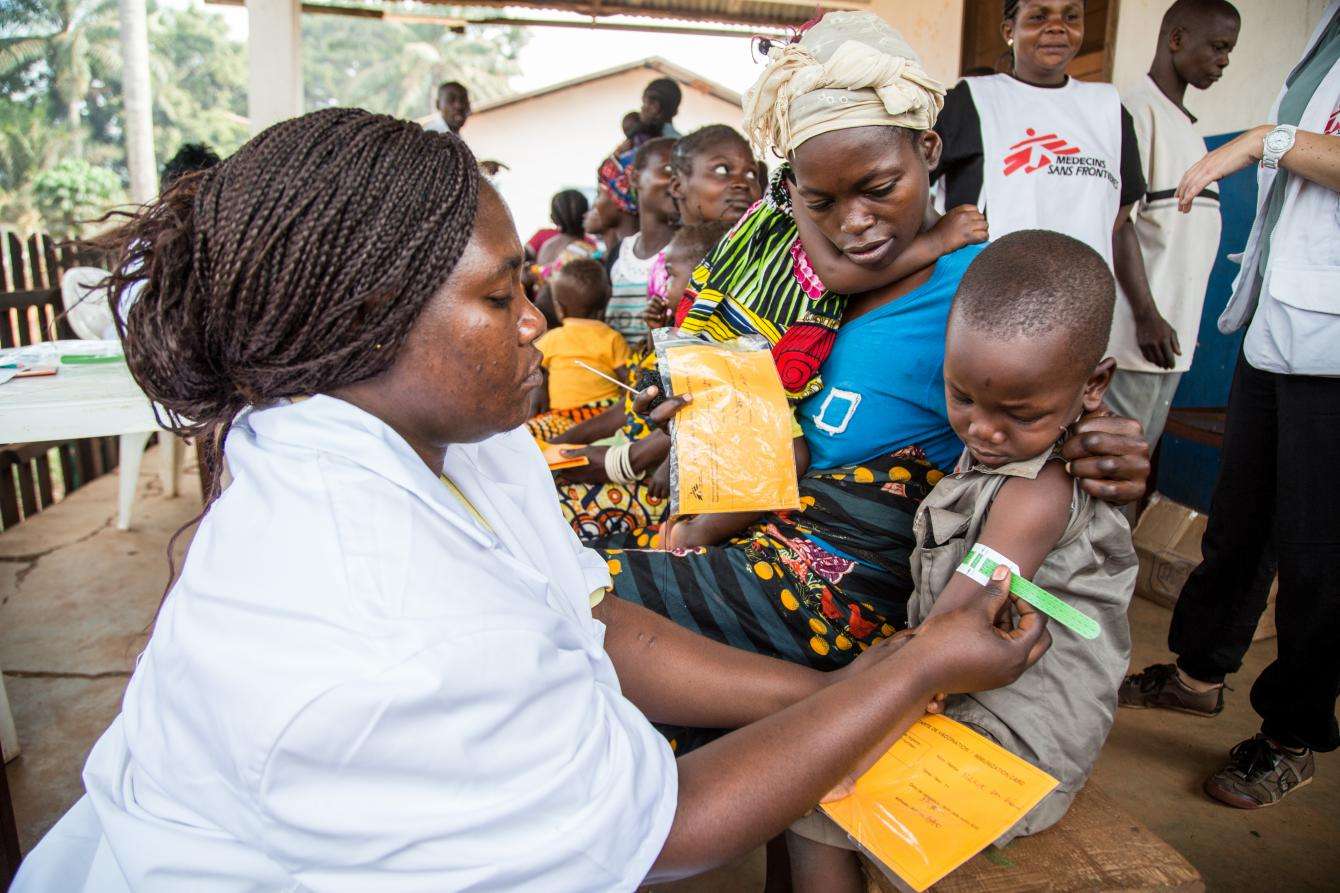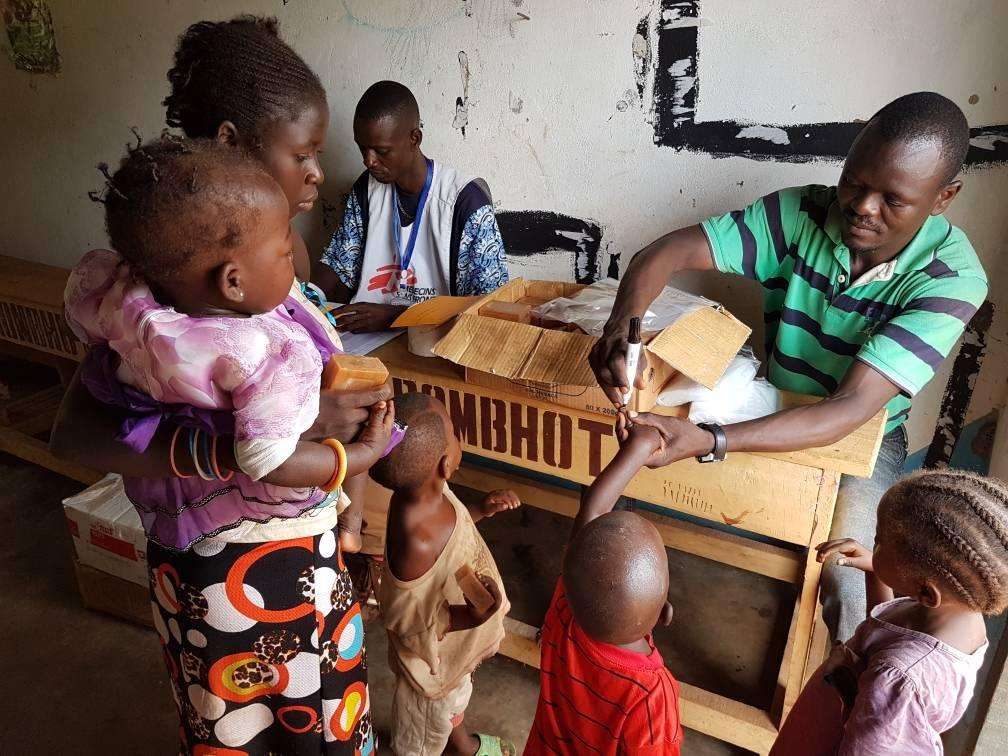The international medical humanitarian organization Doctors Without Borders/Médecins Sans Frontières (MSF), in partnership with the Central African Republic (CAR) Ministry of Health, aimed to vaccinate more than 213,000 children countrywide against nine common but deadly diseases. This unprecedented vaccination campaign was launched in 2015 and ran through 2017, protecting children under five who missed out on routine vaccinations as decades of conflict, displacement, and instability have left many health facilities broken and communities without access to basic medical care.
“This preventive vaccination campaign was the biggest ever undertaken by MSF in CAR and one of the first aimed at protecting under five-year-olds against so many diseases,” said MSF vaccination advisor Dr. Anne-Marie Pegg. The more than one million doses of vaccines administered will protect children from diphtheria, tetanus, whooping cough, polio, influenza, hepatitis B, pneumonia, yellow fever, and measles.
This campaign—which covered six of the seven health districts across the country—was launched after MSF’s medical teams in CAR found that vaccination coverage for childhood illnesses was very low. The fact that children weren’t protected from easily preventable illnesses such as polio and measles was contributing to alarmingly high levels of mortality, well above the emergency threshold.
Immunization rates only got worse in the aftermath of the civil war that took place in 2013-2014, when the percentage of children immunized collapsed. Official Ministry of Health figures showed that from 2012 to 2014, the number of Central African children vaccinated against measles fell from 64 percent to 25 percent, and those vaccinated against acute respiratory infections fell from 52 percent to 20 percent.
While insecurity has continued to plague many communities in CAR, follow-up studies conducted by MSF show that immunization coverage in the areas targeted by the campaign has significantly improved, with vaccination coverage above 80 percent after the first round (some vaccines require more than one dose to be fully effective). This benefits not only the children who were vaccinated but also boosts immunity within each community and improves the overall health of the population.
In many areas, MSF’s teams were able to administer vaccines to the population during moments of calm between periods of fighting between armed groups, before the community became inaccessible again. In addition to vaccinating children, MSF used this opportunity to conduct nutritional screening and offer deworming treatment, medication for malaria, vitamins, soap and mosquito nets.
“Given the situation in CAR right now, one of the main lessons learnt from the campaign is ‘do it while you can!’ meaning taking advantage of every opportunity you have to reach children to protect them through vaccination combined with other preventive measures,” Pegg said.

MSF will use lessons from this immunization campaign—which was adapted to the needs of each health zone—to guide future responses to emergencies in areas where immunization coverage is low and the population’s ability to access to medical staff and care can quickly deteriorate.
The campaign took place in 15 prefectures in which MSF had an existing presence: Berbérati, Sosso-Nakombo, Dédé-Makouba, Gamboula, Amada-Gaza, Bangassou, Bakouma, Ouham-Pende, Carnot, Bria, Mbaiki, Moungoumba, Kabo, Batangafo, and Ndélé.
MSF, which has worked in CAR since 1997, provides a range of free medical services in Bangassou, Bria, Bambari, Kabo, Batangafo, Paoua, Bossangoa, Boguila, Carnot, and Bangui. MSF continues to aid routine immunization programs in MSF-supported health structures in CAR to improve vaccination coverage and reduce child mortality, which remains high.




